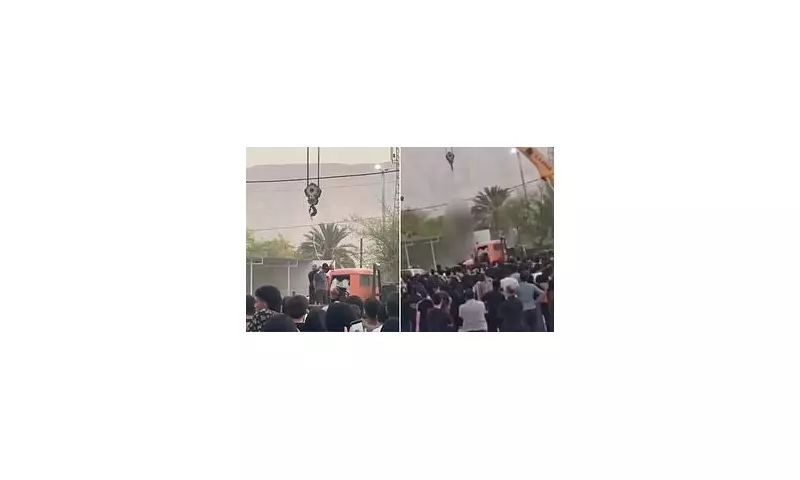
In a scene of brutal judicial theatre that has horrified human rights observers, Iran has carried out a public execution by crane, met with cheers from gathered crowds. The chilling event was captured on video and has since circulated globally, showcasing the regime's unwavering commitment to its interpretation of Sharia law.
A Grisly Public Spectacle
The footage shows the convicted individual, found guilty of a murder committed during a robbery, suspended high above the ground from the arm of a yellow construction crane. The method of execution, designed for maximum public visibility, is a stark reminder of the state's harsh penal code.
Onlookers, including children, can be seen witnessing the event, with some members of the crowd reportedly cheering as the sentence was carried out. This public display is a sanctioned form of punishment for severe crimes under Iran's Islamic legal system.
International Condemnation and Legal Context
This execution has drawn swift condemnation from international human rights organisations, who consistently criticise Iran for its high rate of executions and its use of public capital punishment. Critics argue that such spectacles serve as a tool of societal control rather than a pursuit of justice.
Public hangings, while less frequent than in previous decades, remain a legal form of punishment in Iran for crimes including murder, rape, and drug trafficking. The use of a crane is often employed to ensure the execution is visible to a large crowd, amplifying its deterrent effect according to authorities.
A Recurring Pattern of Punishment
This incident is not isolated. Iran frequently ranks among the world's top practitioners of capital punishment. Human rights groups continue to call for an end to these public spectacles, denouncing them as cruel and inhuman acts that violate international human rights laws.
The dissemination of the video has ignited further debate on the ethics of capital punishment and the specific methods employed, placing Iran's judicial practices under intense global scrutiny once again.





